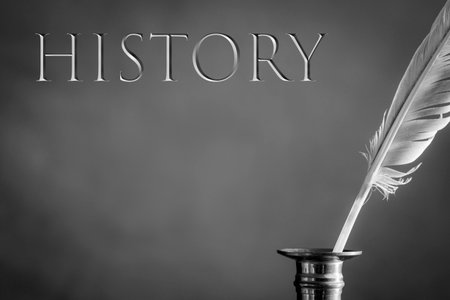Roots of Druidic Wisdom in British History
To understand the enduring role of Druidic wisdom in shaping destiny, one must first delve into its roots within early British societies. The ancient Druids, revered as wise counsellors and keepers of sacred knowledge, emerged from the mists of pre-Roman Britain, their presence woven deeply into the spiritual and social fabric of the land. Their traditions were not merely religious rites but a living philosophy that informed daily life, governance, and the people’s connection to the natural world.
Central to Druidic practice was an unwavering respect for nature and the cyclical rhythms of life. The Druids observed the turning of seasons, the phases of the moon, and the patterns written in the stars—believing these cosmic movements reflected greater truths about human fate and purpose. Oral transmission of lore ensured that their wisdom remained both adaptable and resilient through changing times. This reverence for ancestral knowledge became a cornerstone in shaping local consciousness, instilling values of harmony, balance, and foresight.
The legacy of Druidic tradition is thus not confined to myth or ceremony; it forms a quiet but persistent undercurrent in British cultural identity. From ancient stone circles to village customs that echo ages past, Druidic influence lingers in the collective memory. As we explore how this wisdom continues to shape notions of destiny today, it is essential to appreciate these foundational principles—rooted in observation, introspection, and a profound sense of interconnectedness between people and place.
Nature, Ritual, and Sacred Landscapes
The Druidic tradition is deeply rooted in a reverence for the natural world. Ancient Druids perceived nature not merely as a backdrop to human life, but as an active participant in shaping destiny. This profound respect for the environment can still be seen today in the British appreciation for green spaces, woodlands, and the preservation of rural landscapes. The intricate interplay between nature and human fate, central to Druidic wisdom, has subtly woven itself into the very fabric of British cultural identity.
Rituals played a crucial role within Druidic practice, serving as bridges between the mundane and the sacred. Whether marking seasonal transitions such as Beltane or Samhain, or seeking guidance through divination beneath ancient oaks, these ceremonies were imbued with symbolism that spoke to the cycles of life and destiny. Such ritual observances fostered a sense of communal belonging and continuity—a legacy that echoes today in many British customs, from harvest festivals to solstice gatherings at historic sites.
Sacred landscapes are another essential element of Druidic wisdom. Sites like Stonehenge, Avebury, and Glastonbury Tor are not only archaeological wonders but also living testaments to the enduring power of place in shaping collective memory and personal fate. These locations were chosen with great care, believed to be points where earth’s energies converged, enabling rituals that aligned individuals with greater cosmic rhythms.
| Element | Druidic Significance | Influence on British Culture |
|---|---|---|
| Nature | Source of wisdom and spiritual insight; embodiment of fate’s flow | National parks, countryside walks, environmental stewardship |
| Ritual | Mediation between human intention and destiny; communal bonding | Seasonal celebrations, public ceremonies, local traditions |
| Sacred Landscapes | Portals to deeper understanding; focal points for transformation | Pilgrimages to heritage sites, landscape-inspired art and literature |
In this way, the Druidic devotion to nature, ritual practice, and sacred sites continues to shape the British spirit. Through these enduring elements, ancient wisdom finds new expression, guiding both individual paths and the collective journey of a nation.

3. Druidic Concepts of Fate and Destiny
Druidic philosophy, rooted in the mist-laden groves and ancient woodlands of Britain, offers a distinctive perspective on the intricate interplay between fate and destiny. Unlike more deterministic views found elsewhere, the Druids envisioned life’s path as a living tapestry—one in which the threads of fate are interwoven with the vibrant colours of personal agency. In their teachings, fate was not seen as an unyielding decree but rather as a guiding current, gently influencing rather than dictating each individuals journey.
Central to the Druidic worldview was the understanding that while certain aspects of existence might be shaped by forces beyond human control—the cycles of nature, ancestral influences, or cosmic rhythms—each person retained the ability to respond creatively and thoughtfully to these conditions. This delicate balance between what is given and what can be chosen echoes through centuries of British thought, inspiring poets, philosophers, and common folk alike to contemplate the extent of their own influence over life’s unfolding events.
Moreover, Druidic wisdom encouraged a reflective stance towards one’s place within the broader order of things. Through ritual, story, and contemplation under sacred trees, individuals were taught to discern patterns in their experiences, recognising both opportunity and responsibility along their destined path. The Druids thus fostered an ethic not of resignation, but of active participation—a belief that while the stars may chart possibilities, it is through mindful action that one weaves true meaning into their destiny.
This approach resonates deeply with enduring British values: resilience in adversity, reverence for tradition coupled with openness to change, and a quiet confidence in one’s capacity to steer the course of one’s life. In examining these ancient philosophies, we gain insight not only into Druidic wisdom but also into the perennial British quest to harmonise fate with freedom—a quest that continues to shape identities across these isles today.
4. Wisdom Traditions: Oral Lore and Modern Resonance
In the venerable tradition of the Druids, wisdom was rarely committed to parchment but flourished through the living breath of oral transmission. The ancient Britons revered story, song, and symbol as vital vessels for knowledge, ensuring that each generation would inherit a tapestry of understanding both practical and mystical. This method of passing wisdom—so deeply intertwined with memory and community—has not vanished with the mists of time. Rather, its echoes continue to shape contemporary British culture, subtly influencing how destiny is perceived and embraced today.
The oral lore of the Druids fostered communal gatherings where tales of heroism, nature’s cycles, and moral lessons were woven into nightly fireside recitations. Songs served not only as entertainment but as mnemonic devices, embedding values and historical events in melody. Symbols—whether carved on stones or crafted into jewellery—acted as silent guides, their meanings deciphered by those initiated into deeper mysteries. Through these channels, the Druidic approach to fate emphasised a participatory relationship with destiny: one is not merely at its mercy but an active interpreter and co-creator.
| Medium | Traditional Function | Modern Resonance in Britain |
|---|---|---|
| Story | Imparting values and ancestral history | Folklore festivals, contemporary literature, public storytelling events |
| Song | Preserving collective memory through melody | Folk music revivals, bardic competitions, national anthems |
| Symbol | Conveying spiritual truths and communal identity | Celtic knots in art, tattoos, logos; symbolic motifs in political and social movements |
This living heritage informs modern British perspectives on destiny in several subtle ways. The renewed interest in oral traditions can be seen in the popularity of storytelling circles and folk music sessions across the country—from Cornwall to the Scottish Highlands. These gatherings are more than mere entertainment; they create a shared space for reflection on human agency and purpose within the larger flow of life’s currents. Moreover, symbols rooted in Druidic lore—such as the oak tree or the triskele—have found new meaning among those seeking connection to nature or a sense of rootedness amidst rapid change.
The interplay between old wisdom and present-day sensibilities encourages individuals to view their destinies not as fixed scripts but as evolving narratives shaped by personal choices, communal ties, and a reverence for ancestral insight. In this way, Druidic traditions continue to gently guide British society towards a richer understanding of fate—one where every story told, song sung, and symbol cherished acts as a thread weaving together past aspirations with future possibilities.
5. Druidic Practice in Modern Britain
In contemporary Britain, the resurgence of Druidic wisdom reflects a harmonious blend of ancient tradition and modern sensibility. The echoes of olden rites resound not merely as relics of the past, but as living practices that continue to shape the destinies of individuals and communities. This revival is neither superficial nor nostalgic; rather, it embodies a profound yearning for rootedness and meaning in an age often marked by rapid change and uncertainty.
Revived Rituals and Community Gatherings
The renewed interest in Druidry has seen a flourishing of rituals, particularly at sites imbued with ancestral significance, such as Stonehenge and Avebury. On solstices and equinoxes, groups gather to celebrate the turning of the seasons—a practice that strengthens communal bonds and offers participants a sense of continuity with their forebears. These ceremonies, while adapted for modern contexts, retain the spirit of reverence for nature and cosmic order that defined ancient Druidic rites.
Integration into Daily Life
Druidic wisdom today is not confined to ceremonial occasions; it is woven into the fabric of everyday existence. Practitioners often adopt mindful approaches to living, drawing inspiration from the cycles of nature to inform their rhythms and choices. Concepts such as balance, interconnectedness, and respect for all beings are embraced not only philosophically but also practically—manifesting in dietary habits, ethical consumption, and conscious engagement with one’s environment.
Ecological Activism and Stewardship
Perhaps most notably, modern Druidry has become entwined with ecological activism. Many Druids see themselves as stewards of the land, advocating for sustainable practices and environmental protection. From tree-planting initiatives to campaigns against habitat destruction, these efforts are underpinned by a spiritual imperative: the belief that caring for the earth is both a sacred duty and a means of shaping a more harmonious destiny for future generations.
This integration of ancient wisdom into contemporary British life illustrates how Druidic principles—adapted yet enduring—continue to guide seekers towards purposeful action and deeper connection with both heritage and nature.
6. Enduring Legacy: Druidic Teachings and the Shaping of Individual and Collective Destiny
As we reflect upon the enduring influence of Druidic wisdom, it becomes evident that its teachings continue to weave through the fabric of both personal lives and the wider British society. The ancient Druids, custodians of nature’s mysteries and keepers of spiritual tradition, have left a subtle yet profound imprint on the way individuals understand their place in the world and how communities envision their shared future. At an individual level, Druidic thought encourages a mindful approach to life choices—one rooted in harmony with nature, reverence for ancestry, and a respect for cycles of change. These guiding principles invite people today to make decisions not only with logic but also with intuition, considering the interconnectedness of all things. Such perspectives foster resilience, adaptability, and a sense of purpose, echoing the traditional Druidic belief that destiny is shaped as much by conscious intent as by unseen forces.
The Collective Path: Community and Modern Society
Within the broader context of contemporary Britain, Druidic teachings subtly inform collective values and societal direction. The emphasis on communal responsibility, stewardship of the land, and honouring diversity resonates deeply in modern environmental movements and community initiatives across the country. Festivals such as the solstices at Stonehenge or communal tree-planting ceremonies bear witness to a living legacy—where ancient rituals inspire new expressions of unity and shared aspiration.
Continuity Through Adaptation
The adaptability of Druidic wisdom is perhaps its greatest strength. Its core tenets—respect for nature, balance between tradition and progress, and openness to transformation—have found new relevance amidst the challenges faced by contemporary society. In times marked by rapid change and uncertainty, these ancient teachings offer a compass for those seeking direction, both individually and collectively.
A Timeless Source of Inspiration
Ultimately, the ongoing impact of Druidic thought rests in its ability to inspire reflection and intentional action. Whether influencing personal growth or shaping national conversations around heritage and sustainability, Druidic wisdom continues to guide destinies in subtle but meaningful ways. As British society moves forward, it carries with it not just memories of a mystical past but also a living philosophy—one that encourages all to walk thoughtfully upon their chosen path while honouring the greater journey shared by all.


